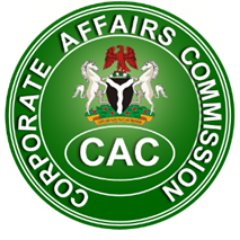EU-ACT, CAC Express Concern Over Low Compliance of CSOs to Extant Laws in Nigeria
Maureen Okpe and Esther Oseyiomon
The European Union-funded Agents for Citizen-Driven Transformation (EU-ACT), a programme of the British Council has expressed concern over the low compliance of Civil Society Organisations (CSOs) with extant laws that guide the regulations of the system in Nigeria especially at the state and local levels.
The Programme Manager of EU-ACT, Mr. Edem Udeokong at a “Regulatory Framework Compliance Training for State Networks and CDPs’ in Abuja, said that ignorance as a result of lack of knowledge as well as negligence on implementation has been a major factor for low compliance.
Udeokong said: “This is sometimes due to a lack of knowledge and unwillingness to comply. In Nigeria, the issue of compliance is in-depth in the system,” adding that: “We are not just proactive in complying with the law as we do not see the need to comply and also for so long the laws are not enforced.”
He also revealed that a survey conducted in 2021 showed the extent of the issues relating to noncompliance by CSOs. “This is happening across the board,” he said.
Udeokong while explaining that ignorance is one of the major reasons for noncompliance, noted that “some are due to negligence and for some, the cost to get an audited account is something that discourages them.”
On solutions needed to mitigate the issue, Udeokong said: “We train them and produce a simplified version of the law, to create a sensitization on how to do things also the regulators need to send out more information and make things cheaper and simpler for the people.”
Assistant Director, Office of the Registrar General of the Corporate Affairs Commission, Mr. Tolulope Sonaike, who also acknowledged the issue of low compliance, said that “compliance means being up to date.” He added that “most of these organisations do not understand their statutory obligations.”
Sonaike also noted that the defaulting CSOs “do not engage the services of consultants and experts to advise them,” stressing that there is a low understanding of what it will take after registration to remain in business effectively.
He added that; “The reasons may also be that they do not even know they should be filing those returns. Some of them have changed structures without notifying the CAC and when that happens they have a duty under the law to do so.
“If there are changes in the particulars of directors and/or secretary, if you alter your constitutions or change your trustees all of these have to be notified to the commission but a lot of organizations do not know this.”
Speaking further Sonaike noted that, “the issue of low compliance may be that there is a low level of knowledge in this regard and they must know this because this may give rise to striking off the company as this is a ground for such a penalty.
“The commission has a search portal where anyone can go look up information to determine the status of a company as active or inactive. Active in this context means an organization is up to date with annual returns filing.
“If you fail to disclose, the commission can also indicate the organisation’s status as inactive so there are consequences, which might not be detrimental to the organisation.”

